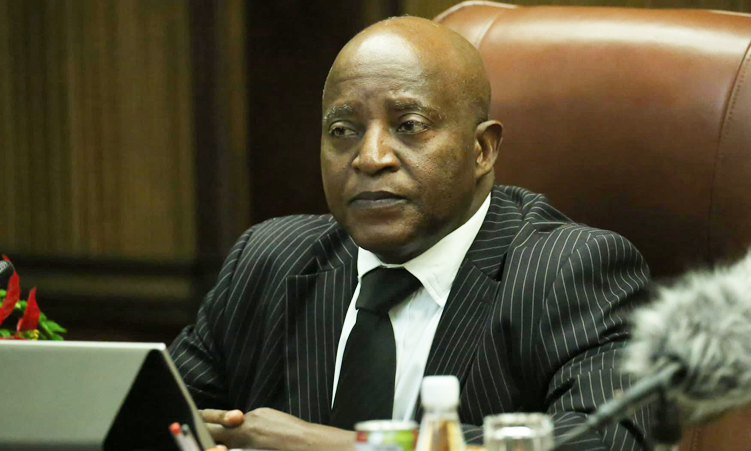I AM responding in reference to the letter published on March 31, by Mr J Nekundi.
First let me just say thanks for your valuable contributions, because you seem to concur with me and the public that sometimes our office-bearers need to pay attention to our demands. Moreover, I also disagree with some of your points.First, Mr Ndishishi discredited himself for going to the court unprepared regarding the until now untraced N$55 million investment.Worse, the public are still in the dark as information is not coming through his office as a custodian of the government.Second, discredit is from the WTO’s secretariat, in particular saying that the Ministry of Trade and Industry has no capacity to negotiate regarding trade related investment, but instead SA negotiates on our behalf.Why would he/she lie about this? I know that Namibia is doing well at bilateral and interregional agreements, but to be specific SACU may in the future no longer be effective in generating revenue for Namibia.SACU revenue for members including Namibia may be affected under the WTO’s Most-Favoured-Nations; meaning that members, irrespective of bilateral, interregional or multilateral agreements would be required to treat each others equally.You may say it is impossible, but negotiation may be underway where the Multilateral Agreement on Invesment (MAI)applying to goods and services would be clinched.It could mean that trade barriers in goods under GATT would be removed as services are enjoying fair and free trade under GATS, today.Therefore, the MTI needs to prepare its staff on this.Third, I disagree with you regarding group negotiation as the only effective measure to counterbalance Japan, USA etc.Most negotiating groups have been formed from G-10; G-19; G-20 to G-21, but when it comes to outputs it is rather disappointing.This is because they are susceptible and sometimes can be fragmented.For example, while in negotiation, let’s say the USA decided to offer cheaper alternative investment to the group.Some members within the group may be tempted to accept such offer while others refuse.Consequently, the group would be collapsed.Fourth, developed countries do not have the same needs regarding trade and investment.Japan normally demands for competitive policy in contrast with infant industry protection.USA has what is called ‘Capital Neutrality’ meaning that the USA government discourages their investors not to expatriate profit to the home country, but to re-invest in host country or to create another subsidiary elsewhere.Finally, perhaps I will concur with you regarding OECD countries demanding the WTO include the bill of rights under the MAI.The logic is to invest in any country, but also to have the capacity to sue that government, to challenge its national policies, regulations and the environment, but it is unlikely, because France, USA and Canada disapprove of the idea.As you love Namibia, I love my country too, but we need to minimise slippage to achieve Vision 2030.Herman Hamutenya Via e-mailMoreover, I also disagree with some of your points.First, Mr Ndishishi discredited himself for going to the court unprepared regarding the until now untraced N$55 million investment.Worse, the public are still in the dark as information is not coming through his office as a custodian of the government.Second, discredit is from the WTO’s secretariat, in particular saying that the Ministry of Trade and Industry has no capacity to negotiate regarding trade related investment, but instead SA negotiates on our behalf.Why would he/she lie about this? I know that Namibia is doing well at bilateral and interregional agreements, but to be specific SACU may in the future no longer be effective in generating revenue for Namibia.SACU revenue for members including Namibia may be affected under the WTO’s Most-Favoured-Nations; meaning that members, irrespective of bilateral, interregional or multilateral agreements would be required to treat each others equally.You may say it is impossible, but negotiation may be underway where the Multilateral Agreement on Invesment (MAI)applying to goods and services would be clinched.It could mean that trade barriers in goods under GATT would be removed as services are enjoying fair and free trade under GATS, today.Therefore, the MTI needs to prepare its staff on this.Third, I disagree with you regarding group negotiation as the only effective measure to counterbalance Japan, USA etc.Most negotiating groups have been formed from G-10; G-19; G-20 to G-21, but when it comes to outputs it is rather disappointing.This is because they are susceptible and sometimes can be fragmented.For example, while in negotiation, let’s say the USA decided to offer cheaper alternative investment to the group.Some members within the group may be tempted to accept such offer while others refuse.Consequently, the group would be collapsed.Fourth, developed countries do not have the same needs regarding trade and investment.Japan normally demands for competitive policy in contrast with infant industry protection.USA has what is called ‘Capital Neutrality’ meaning that the USA government discourages their investors not to expatriate profit to the home country, but to re-invest in host country or to create another subsidiary elsewhere.Finally, perhaps I will concur with you regarding OECD countries demanding the WTO include the bill of rights under the MAI.The logic is to invest in any country, but also to have the capacity to sue that government, to challenge its national policies, regulations and the environment, but it is unlikely, because France, USA and Canada disapprove of the idea.As you love Namibia, I love my country too, but we need to minimise slippage to achieve Vision 2030. Herman Hamutenya Via e-mail
Stay informed with The Namibian – your source for credible journalism. Get in-depth reporting and opinions for
only N$85 a month. Invest in journalism, invest in democracy –
Subscribe Now!










